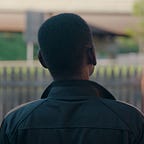A good first showing
For a filmmaker, there’s nothing quite like sharing your film with a large audience. For an activist filmmaker, the experience is taken to another level when you feel that your film’s message has resonated with that audience. Our documentary is about the wonderful story that Utica is, so showing the film there was triply sweet. Over 1000 people attended in the huge and beautifully restored landmark that is the Stanley Theater, itself a symbol of resilience.
Full disclosure, I’m a nervous guy. Speaking in front of a large audience is something I’ll do, but it doesn’t always go well. In this case, I felt so connected to the subject matter, so wanted to help tell the truth about the issue of refugee resettlement, that my experience was rather that of being in a flow state. As one of our producers, Matt Levine, once told me, “This isn’t about you and your little film. This is about a vulnerable population and an important issue.” It’s true and it’s much easier to stay focused with this purpose in mind. It went beautifully.
The long and short of it is that we had a great story to tell about people trying to be their best and who, in doing so, were helping a struggling rustbelt city return to its former glory. When the audience stood to applaud as the credits began, my heart was full. I coasted through the Q&A buoyed by a deep sense of satisfaction.
My passion in life is sharing what genuinely good work looks like, reminding people of how great we can be when we focus on delivering kindness in the best possible way. I’ve made many films about non-profit work over the course of my career and have come to regard the informed way many of them approach the populations they serve as exemplary. Part of this is being scientific: what does this population typically need and how can we get it to them in the most effective way? Combining this framework with the understanding that each person is an individual and may have idiosyncratic needs is what makes their work sing.
In the case of our film, Utica: The Last Refuge, we had all this happening in front of us. Utica’s refugee center, properly named The Center, excels at what it does. Under one roof it provides English classes, cultural training (how to ride the city bus, how to use a car seat…), help with moving towards citizenship, translation, etc. The list is long and comprehensive. But what really makes refugee resettlement spectacular is the refugees themselves. They don’t just want to succeed here, most of them are bent on it. Put refugees together with a resettlement agency that knows its stuff, you get magic.
So, we had a magic evening. My hope, of course, is to have a few of these. The trick is to sell people on the idea of watching a film that is trying to be more than entertaining. What I say is, “Give our doc a chance. You will come away charged and uplifted. You’ll be more informed and therefore a better voter.” At the risk of coming off as pretentious, what’s on offer is the sentiment, “Let’s try to be kinder and greater together.”
